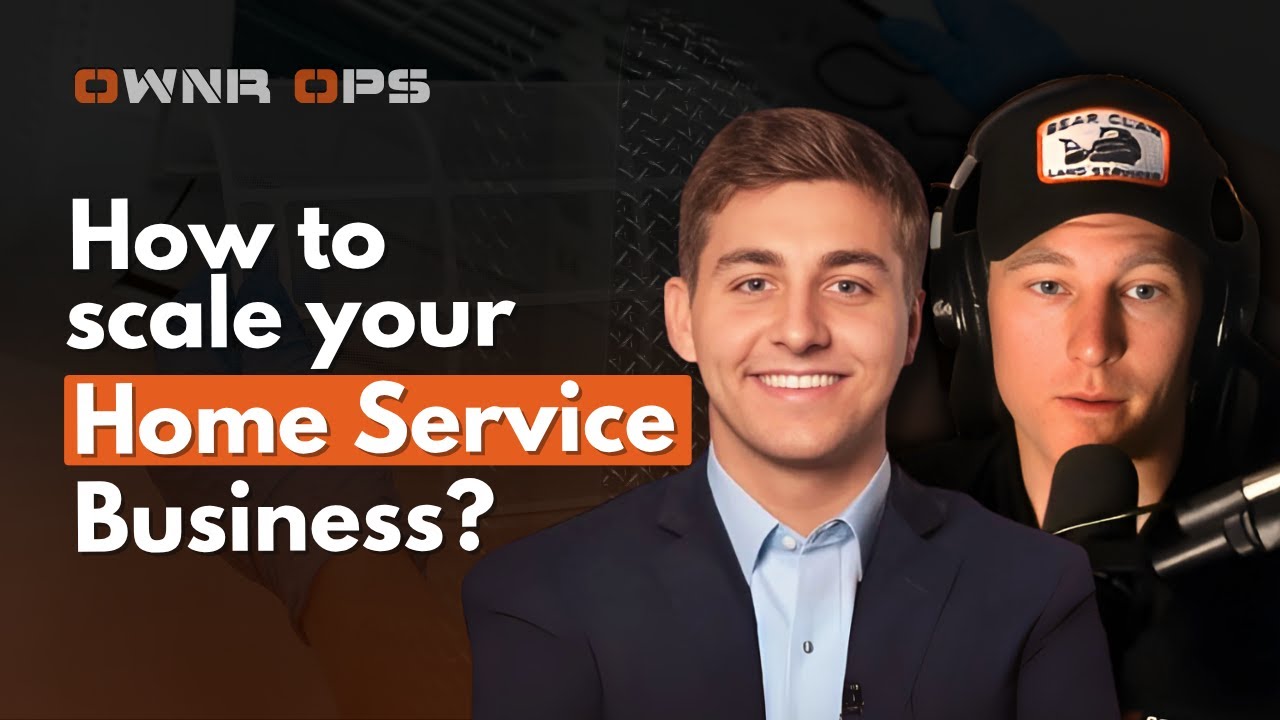When it comes to growing a local service business, most owners think about hustling harder—more jobs, more sales, more hours. But according to Steven Nash, who manages a portfolio of HVAC businesses ranging from $600K to over $100M in revenue, scaling is less about brute force and more about solving problems systematically.
I recently sat down with Steven on the OWNR OPS Podcast to dive into how private equity leaders think about growth, what separates operators who stay small from those who break through, and why the harsh truth is that every failure in your business is ultimately your responsibility.
1. Debt: Who Really Owns Your Business?
One of Steven’s earliest lessons came when he almost bought a manufacturing company. On paper, the business looked solid—but it was drowning in debt.
“If you’ve got too much debt, the bank owns your business, you don’t own your business.”
Growth requires capital, but Steven stresses efficiency: grow with discipline, don’t let leverage control you. Too many operators handicap themselves by taking on debt they can’t manage.
2. Scaling Is About Solving Bottlenecks
Steven’s grandfather, who built one of the world’s largest homebuilding companies, had a mantra:
“The way you get to the top of the house is one ring of the ladder at a time. You just solve one problem at a time, one bottleneck at a time.”
Most entrepreneurs get stuck because they want to sprint to $10M without a plan. Instead, Steven suggests inverting your target:
- Define your revenue goal.
- Break it down into jobs.
- Calculate how many leads you’ll need.
- Decide whether you’ll improve conversion rates, lead flow, or both.
Growth isn’t magic—it’s math.
3. The Language of Business: Why Operators Stall at $1M
Steven’s team typically won’t partner with HVAC businesses under $800K. Why? Because many operators plateau there.
The reason: they don’t understand the language of business.
They’re great at the trade—installing systems, closing jobs—but they don’t know where the money is going.
Steven puts it bluntly:
- Most small business owners don’t understand basic accounting.
- They book revenue but don’t track cash flow.
- They confuse growth with profitability.
The fix? Learn the basics: receivables, payables, accrual vs. cash accounting. Or, bring in a partner who knows it. Either way, you can’t afford to ignore the numbers.
4. Working On the Business vs. In the Business
At the $800K–$1M mark, too many owners are still answering phones, running sales calls, and even doing installs. Steven explains why that’s a dead end:
“It’s hard to think about your business when you’ve got customers calling all day. The first step is freeing up your time to work on the business—not just in it.”
Working on the business means focusing on:
- Building systems and processes (checklists, training, repeatable workflows).
- Recruiting the right people to run those systems.
- Tracking KPIs that actually drive growth (cash flow, conversion rates, efficiency).
5. Systems and Checklists: Scaling Beyond Yourself
Steven loves the McDonald’s model: teenagers with zero experience can quickly become productive because the systems are dummy-proof.
That’s how service businesses should think. Every mistake becomes a new checklist item. Every repeatable task gets documented so anyone can follow it.
This does two things:
- Protects quality, even when you hire someone less skilled than you.
- Allows you, the owner, to focus on higher-ROI tasks—vision, leadership, and growth.
“If something goes wrong, it’s always your fault. Not because you swung the hammer, but because you didn’t build the system that prevented the mistake.”
6. Visionary vs. Executor: Which Are You?
Steven draws a clear line:
- Executors are great operators, focused on the present.
- Visionaries see where the business could go.
The rarest entrepreneurs are both. If you’re not, you need to partner or hire someone who complements you. The moment your current way of operating stops working, it’s time to define your role—or bring in someone who can fill the gap.
7. Lessons from Steven’s Grandfather
One of the most powerful parts of the conversation came when Steven reflected on his grandfather’s wisdom:
- Hire smarter people than yourself. It’s the only way to scale.
- Live humbly. He drove an old Cadillac and wore 20-year-old sweaters despite enormous wealth.
- Give generously. He believed in giving money away while alive, quietly and meaningfully.
Most importantly, he always prioritized family. Despite running a massive company, he was home for dinner every night.
Final Takeaway: Radical Accountability and Systems Build Big Businesses
If you want to scale past the $1M mark, Steven’s message is clear:
- Learn the language of business.
- Build systems so the business doesn’t depend on you.
- Accept radical accountability—every failure is on you.
- And above all, take it one bottleneck at a time.
Because the businesses that endure aren’t built by superheroes—they’re built by owners who systematize, recruit the right people, and stay disciplined long enough to climb the ladder one ring at a time.
👉 Catch the full episode with Steven on Spotify, Apple Podcasts & YouTube.
👉 Join our FREE Skool community, to connect with other service business owners building scalable systems.


